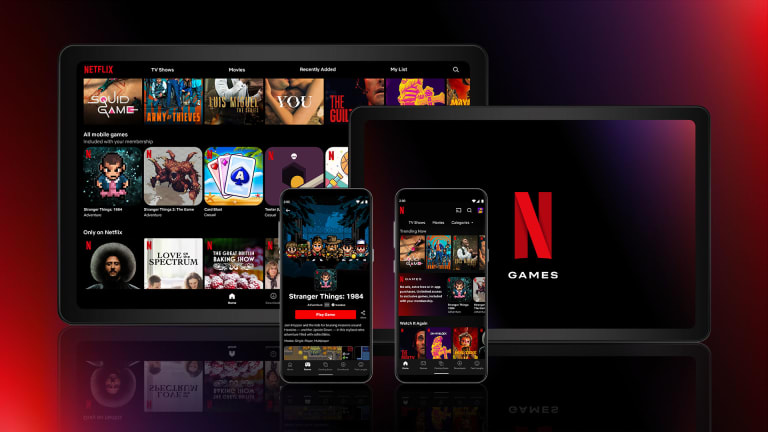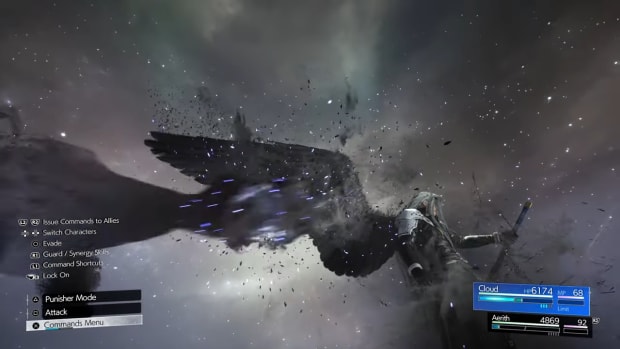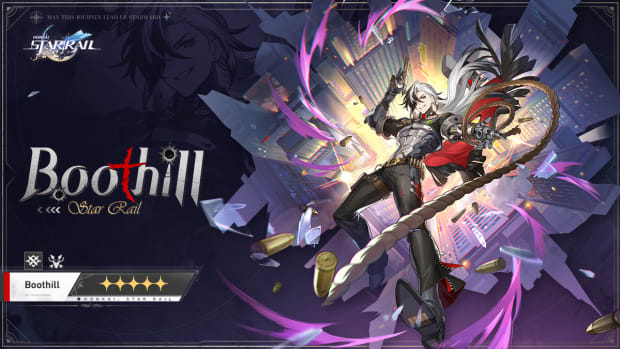
Netflix Games has lofty ambitions and the right attitude to fulfill them

When big companies from outside the video game industry enter the space with ambitious goals and expect success by throwing money at the problem, things don’t turn out too well. That could have been the story of Netflix Games as well. The streaming service ventured into video games in 2021, aiming to provide subscribers with games they could play on the same devices they are watching shows on. To this end, Netflix not only formed several internal development studios, but also built up an external games division to act as a publisher for third-party titles.
We recently had the chance to attend a digital presentation held by Leanne Loombe, the VP of External Games at Netflix. Among other things, Loombe in the past worked at EA on the Need for Speed series and took part in getting Riot Games’ external publishing division, Riot Forge, off the ground.
Loombe declared that Netflix wants to become “a world-class publisher every developer wants to work with.” The question of “why” is pretty simple to answer: entertainment. Netflix has over 230 million subscribers, who above all pay to be entertained – including games into that equation is important.
The service has quite realistic expectations when it comes to what kind of effort it has to put in to make this work: It doesn’t “want to make the one game for everyone” – trying to cater to over 230 million tastes with a single product would indeed be a fool’s errand – and is instead looking to curate a broad selection of games that will cover everyone’s tastes and knowledge levels.
Naturally, Netflix’ own IPs will have a big role to play in these plans – successes like Riot Games’ Arcane on the streaming platform and HBO and Naughty Dogs’ partnership on The Last of Us have shown what’s possible in terms of cross-media plays. However, another important pillar of the strategy is that Netflix doesn’t want any in-game ads or purchases in its titles. That liberates developers creatively and lowers the entry barrier for players.
Netflix Games has put quite a sizable operation into place to make that plan a reality: three internal development studios and several R&D teams are working on Netflix’ own titles. They are supported by departments for tech, quality assurance, localization, production, and business development, all of which are also part of Netflix’ publishing efforts.
While Netflix hasn’t been in games for a long time, the company’s prior experience in those fields is very applicable to the new business. María Sayans, CEO of Monument Valley creator ustwo, made an appearance at the presentation to highlight one of those areas: localization. The indie studio’s game Desta: The Memories Between, which launched on Netflix in 2022, contained a few challenges related to regional dialects as well as personal pronouns of the main character that the developer found very difficult to navigate by itself. Netflix’ experienced localization teams were able to help out, finding corresponding dialects and pronouns in different languages.
Speaking of Monument Valley, the first two games of the series will come to Netflix in 2024 – the implication of “more to come” being thrown in to indicate that another sequel is on the way.
55 games have been launched as part of Netflix’ service since November 2021. The company has currently 70 games in development at external partners and another 16 at its own studios, though some of those are in “very early development stages” still. Altogether, Netflix expects to release around 40 games in 2023 with new launches every month.
All of these new development projects were informed by feedback gathered from the first wave of releases, Loombe said. Netflix’ strategy is always adapting new learnings from what’s going on, a few of which the VP of External Games shared: Netflix subscribers gravitate towards the service’s own IP as well as popular IP in general, and seem to favor games they can easily play daily. She named Teenage Mutant Ninja Turtles, Valiant Hearts, and Immortality as brands that did well, while gaming classic Solitaire is one of those games that people return to every day.
Especially encouraging for Netflix is likely the success of the Too Hot To Handle and Stranger Things games, both of which are based on the service’s own IP. Loombe mentioned that Too Hot To Handle: Love is a Game was launched simultaneously with the latest season of the steamy show and received weekly content drops, the cast playing a role in promoting the title – this, it turns out, was a great example for the kind of cross-media strategy Netflix wants to go for. It’s also one of the company’s great strengths as a publisher to have access to those resources, Loombe said.
Too Hot To Handle’s next season will bring a new game with it as well, she announced.
Moving forward, these cross-media plays look like they’ll become a lot bigger. The CEO of Super Evil Megacorp, Kristian Segerstrale, announced that his studio – the maker of the successful competitive mobile title Vainglory – is currently working on a “team-based combat game” based on an upcoming Netflix IP, which will tie into that universe and help flesh it out.
He commented that the evolution of the free-to-play mobile game market has made it very hard to innovate and be discovered due to the mass of products thrown into it, which is why Netflix’ “no in-game purchases” philosophy has the team “excited to leave the usual business model behind” and “build something bigger”.
Ubisoft’s Assassin’s Creed mobile game might be another property able to generate cross-media success in combination with a streaming series, though presentation attendee Etienne Tardieu did not want to comment on that project yet. He put the spotlight on Mighty Quest: Rogue Palace, which will launch on April 18, 2023, on Netflix and is a roguelike action RPG with cute graphics and a very quirky setting coming from Ubisoft Paris. Ubisoft worked with Netflix on Valiant Hearts: Coming Home and was very pleased with the reception of that game, showing that the company is not only a valuable partner for small indie developers.
For now, mobile games will remain the focus for Netflix. However, the company eventually wants to expand into other areas and provide its own platform for its games to live on. That will likely be connected to its cloud gaming efforts, which undoubtedly will be the key to get hardware-hungry triple-A titles working on all Netflix-capable devices.
What stands out from Loombe’s presentation is the attitude the leadership at Netflix seems to have towards the gaming venture. There doesn’t seem to be an expectation of a stellar rise to instant success. Instead, the company is in it for the long haul. “Not everything will be a hit”, Loombe stated. Risks will have to be taken and they sometimes won’t pay off, but all of that will be needed “to learn and adapt our strategy.” The end goal, after all, is to have “a game on Netflix for everyone” and for the service to become “a destination for must-play games.”





